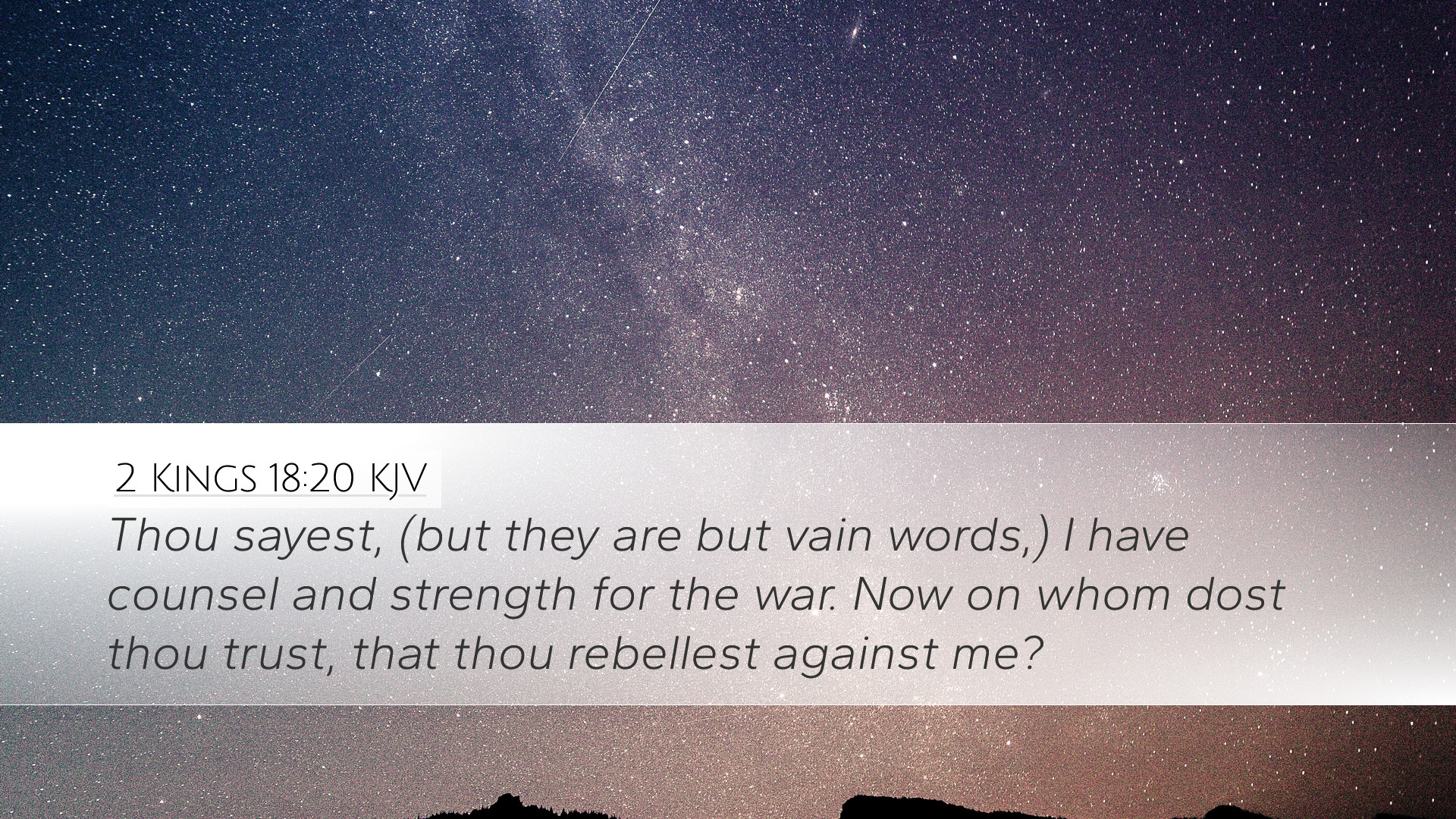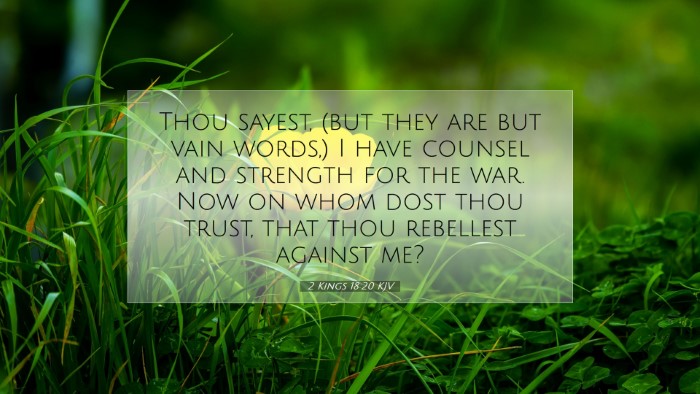Commentary on 2 Kings 18:20
This verse states:
"Thou sayest, (but they are but vain words,) I have counsel and strength for the war. Now on whom dost thou trust, that thou rebellest against me?"
Overview
In 2 Kings 18:20, we encounter the Assyrian perspective during their siege against Jerusalem. The Assyrian commanders were attempting to dissuade the people of Judah from relying on their king, Hezekiah, and instead urge them to submit to the might of Assyria. This situation provides a critical insight into the nature of trust, reliance, and the consequences of rebellion against perceived authority.
Insight from Public Domain Commentaries
Matthew Henry's Commentary
Context of the Message: Henry notes that the Assyrian representative, Rabshakeh, is not merely presenting a political challenge but is also engaging in psychological warfare. His words carry an air of boldness mixed with mockery aimed at instilling fear amongst the people.
- Vain Words: The Assyrians boast of their military might, suggesting that their words are not based on truth but rather a desperate attempt to intimidate Hezekiah.
- Trust in God: Despite Rabshakeh’s claims, true strength is found in reliance on Yahweh, as Hezekiah would later demonstrate. Henry emphasizes that the people are reminded of God’s past deliverances, suggesting that their faith should not waver in the face of adversity.
Albert Barnes' Notes on the Bible
Barnes elaborates on the rhetorical questions posed by Rabshakeh, interpreting them as a direct challenge to the faith and trust of the people of Judah.
- Rebellion Against Me: This phrase signifies that the Assyrians viewed their military campaign as divinely sanctioned. Barnes points out that worldly powers often believe their conquests are justified by their strength and success.
- Lessons in Faith: Barnes encourages readers to consider the importance of placing trust in divine strength rather than human endeavors. In moments of crisis, he believes that it is critical to recognize the futility of relying solely on physical power.
Adam Clarke's Commentary
Clarke takes a more detailed linguistic approach, analyzing the original text and its implications. He suggests that the Assyrian emissary’s words reveal a fundamental misunderstanding of God’s nature and His sovereignty.
- Understanding God’s Sovereignty: Clarke argues that the audacity of Rabshakeh illustrates the spiritual blindness resulting from pride. He challenges the idea of placing ultimate trust in political or military prowess, emphasizing that such trust is misplaced.
- Divine Response: The commentary suggests that God responds to such insolence by ultimately defending Jerusalem, illustrating how human wisdom is vain in the light of divine will.
Theological Implications and Applications
The narrative surrounding 2 Kings 18:20 provides rich theological implications for modern-day believers:
- In God We Trust: The challenge posed by Rabshakeh serves as a reminder for believers today to evaluate where their trust lies. In a world filled with uncertainty and adversities, the rallying cry to trust in God is perpetual.
- Understanding God’s Power: Just as Hezekiah and Judah faced threats much stronger than themselves, modern believers often encounter challenges that seem insurmountable. This passage encourages individuals to recognize God’s deliverance in trials.
- Rebellion and Consequences: Rabshakeh’s taunts signify the spiritual consequences of rebellion against God. Church leaders and scholars must teach about the dangers of deviating from trust in God and the inevitable downfalls associated with such rebellion.
Conclusion
2 Kings 18:20 highlights the tension between human arrogance and divine authority. The insights provided by prominent biblical commentators reveal not only the historical significance of this moment but also its enduring theological relevance. Pastors, students, and theologians are prompted to reflect on the nature of trust in their lives and to consider the ultimate power of God over any earthly threats.


